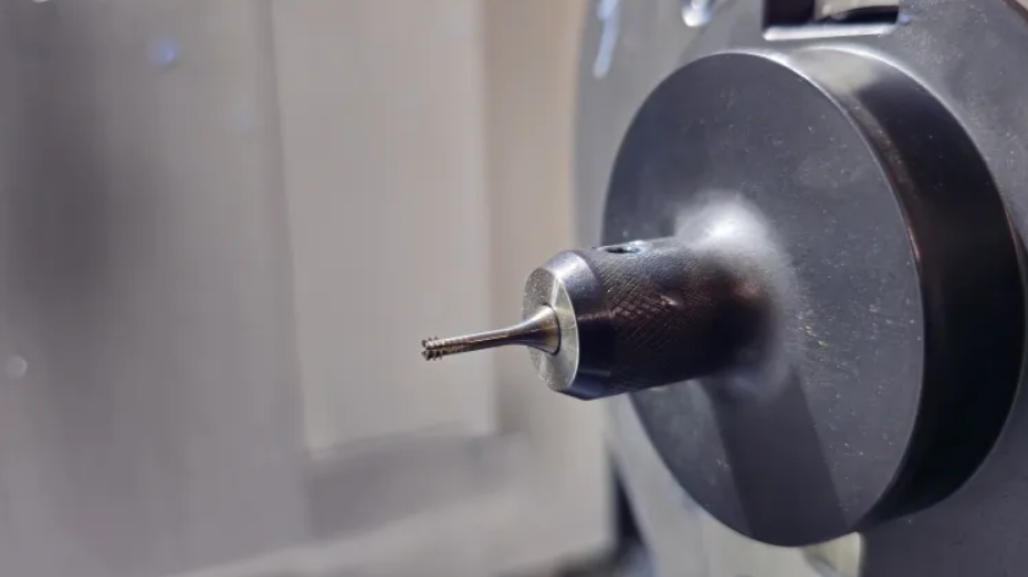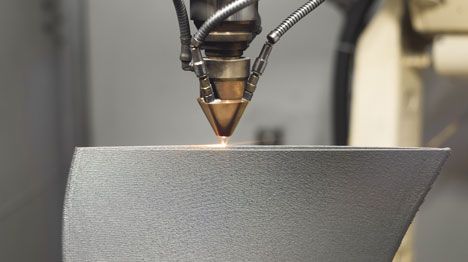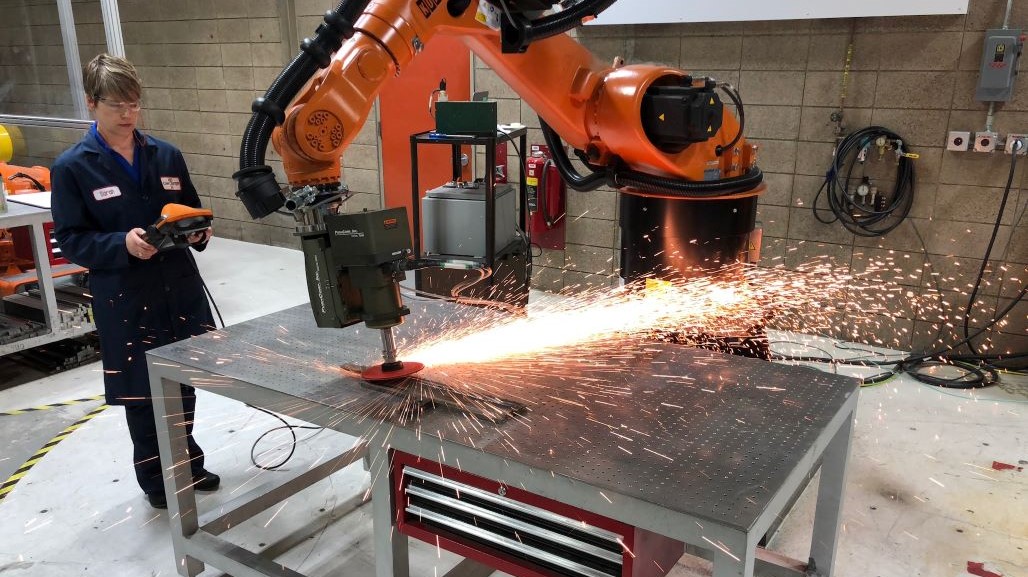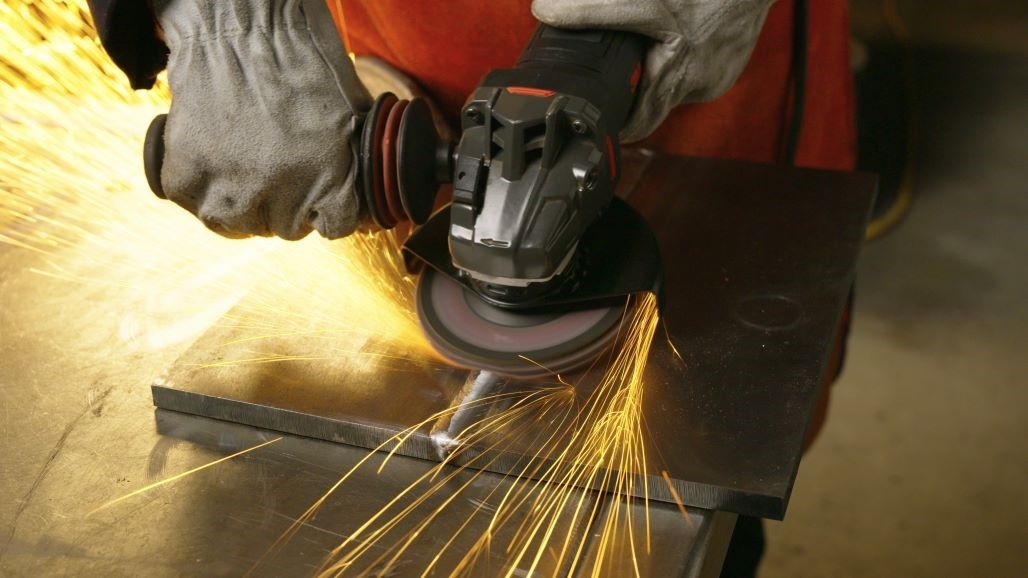7 Must-Know Tool Coatings for High-Performance Machining
Want more output? It might be time to use tools with coatings that are specifically designed for better performance and tool life.
Want more output? It might be time to use tools with coatings that are specifically designed for better performance and tool life.
If you need to boost your CNC machining operation, it pays to understand how the technology of tool coatings can make a difference. Here are some good reasons to evaluate a high-performance cutting-tool coating for your next problem job.
Good carbide is important, but a good coating applied to the surface of that carbide is often critical. In this article, we interview Dr. Jon W. Paggett, director of coating development at Kyocera Hardcoating Technologies, to discuss recent developments in cutting-tool coatings—and how they help shops increase productivity and reduce tooling costs.
Kyocera SGS Precision Tools is a leading manufacturer of end mills, drills and routers and offers many different tool coatings. Though the names are proprietary, there are the old standbys, such as TiN and TiCN, with which any machinist is familiar, as well as some relative newcomers to the coating block. Here are the top seven:
Ti-NAMITE (titanium nitride)
Ti-NAMITE-A (aluminum titanium nitride)
Ti-NAMITE-B (titanium diboride)
Ti-NAMITE-C (titanium carbonitride)
Ti-NAMITE-X (proprietary nanocomposite)
Di-NAMITE (crystalline diamond)
Ti-NAMITE-M (proprietary nanocomposite)
There are more, but it’s the second one—AlTiN, together with its silicon-containing (AlTiN/Si3N4) relatives—that Paggett says has largely supplanted TiN as the go-to coating for a broad range of applications.
“It’s perhaps the most common, generally applicable coating available, and is a good, high-performance choice for stainless steels and some superalloys,” he explains. “Furthermore, the addition of chromium to various coatings—AlTiCrN and AlCrN, for instance—enhances thermal stability for a number of higher temperature applications.”
Do you need a technical question answered? Ask the MSC Metalworking Tech Team in the forum.
There’s much more to cutting-tool coatings than a bunch of esoteric chemical compounds. The method used to apply the coatings is equally important, as is the tool’s edge preparation, the coating thickness and the grain size of the carbide substrate.
“Many advanced coatings today include nanostructures such as nanolayers or nanocomposites,” says Paggett. “Assuming the thickness of these ultra-thin layers can be controlled within a given range, they serve to improve the hardness and wear resistance of the coating, with only a minimal sacrifice in toughness. These layered, multiphasic structures also aid in the deflection of cracks that would otherwise propagate into the tool.”
Nitride coatings are typically in the 2 to 4 mm range, Paggett says, noting that the stresses between coating and substrate increase with the coating thickness. Go too thick and the result might be delamination followed by tool failure.
And as anyone who’s used a TiC or other legacy CVD-coated tool can attest, thicker coatings also “dull” the tool by adding to the radius of the cutting edge. This is advantageous in some applications—carbon steel and cast iron, for example—but for stainless steel, aluminum, tool steels and superalloys, a sharp edge and positive rake tool are generally the first choice.
Are you considering high-performance machining? Learn how. Read “Is It Time to Embrace High-Performance Machining?”
Of course, coating technology has changed greatly since the early days of TiC and other CVD coatings. Today’s thickest TiC-coated tools are much sharper than they once were.
“Advances in the application of PVD coatings have included cathode designs that attempt to combine the advantages of cathodic arc and magnetron sputtering,” says Paggett. “Magnet configuration and pulsed arc reduces macroparticles and makes a smoother coating from cathodic arc systems, while HiPIMS (high power impulse magnetron sputtering) increases the ionization ratio and deposition rate of sputtering systems. Advances are also being made in plasma etching configurations, which increases coating adhesion.”
All this talk of magnetrons and sputtering systems can be heady information. To a machinist, all that’s important is tool life and how fast metal can be removed. If that metal is aluminum, notes Paggett, take a hard look at another coating newcomer, titanium diboride.
TiB2 is an excellent coating for aluminum alloys and other nonferrous applications. Its high hardness gives good wear resistance in abrasive silicon-containing aluminum alloys and reduces the built-up edge that ultimately leads to tool failure.
And what effect does edge preparation have on cutting tool performance?
“When viewed under a microscope, as-ground tool edges are quite rough,” says Paggett. “High spots act as stress concentrators that can lead to premature fracture and a deterioration of the cutting edge. But edge preparation smooths out this roughness, as well as introducing a hone that further strengthens the edge.”
Anyone who’s shopped for a cutting tool lately has almost certainly noticed the higher price tag that comes with these advanced coatings—at 2 to 3 times the price of “standard” tool coatings, is it really worth it? Paggett thinks so.
The potential performance increases depend on a wide range of variables, including the workpiece material, tool geometry, tool paths and the machine tool, but material removal rate increases of 10 times or more are possible in certain applications
“The higher productivity and tool life will almost certainly result in a net reduction in overall cost,” he adds.
Granted, an older or underpowered machine tool won’t be able to take full advantage of these productivity gains, but the extended tool life would still be beneficial.
“With that in mind, there are specific applications within the medical and aerospace sectors where they may be reluctant to use coatings due to biocompatibility or material transfer concerns,” says Paggett. “However, for most applications, it behooves shops to evaluate and test new coatings as they become available.”
What are your favorite tool coatings for tough-to-cut materials? Talk to your peers in the metalworking forum. [registration required]
Skeptical about the benefits of high-performance tool coatings? So was one of Kyocera’s customers in the power generation industry. The company had recently transitioned from grinding to milling of a copper 110 alloy workpiece, and quickly discovered that edge buildup was creating unacceptable tool life and poor part quality in the gummy material. The company approached Kyocera for help.
Kyocera engineers recommended using a 2-flute, 1/4:” diameter end mill with a TiB2 (titanium diboride) coating, known for its high hardness and low coefficient of friction. They retained the legacy tool’s 0.312” radial and 0.005” axial depths of cut but reduced spindle speeds from 3,650 rpm to 1,300 rpm while increasing the feed rate from 1.8 ipm to 19.5 ipm.
The results? The metal removal rate increased tenfold, tool life went up by a factor of four and the customer saved more than $20,000 over the course of the 3,600-piece job.
“This is just one example of the greater productivity, extended tool life, and extreme cost-savings possible with modern coating technology,” says Dr. Jon W. Paggett, director of coating development at Kyocera Hardcoating Technologies.




